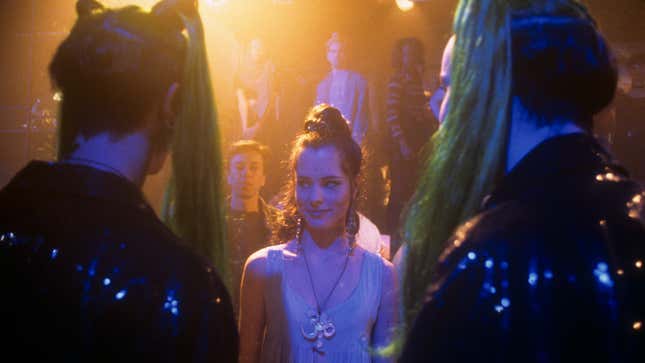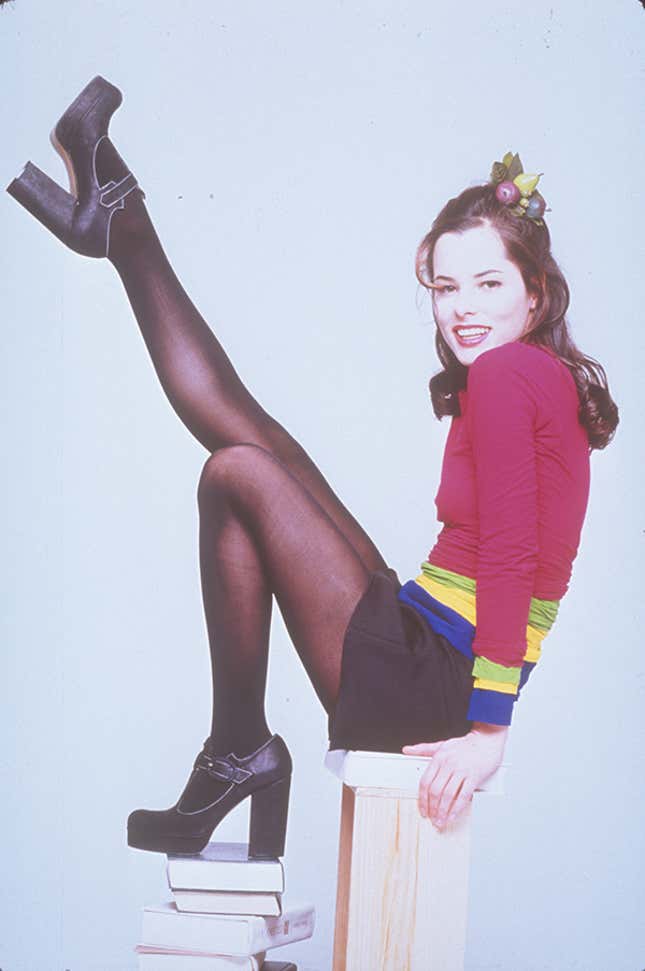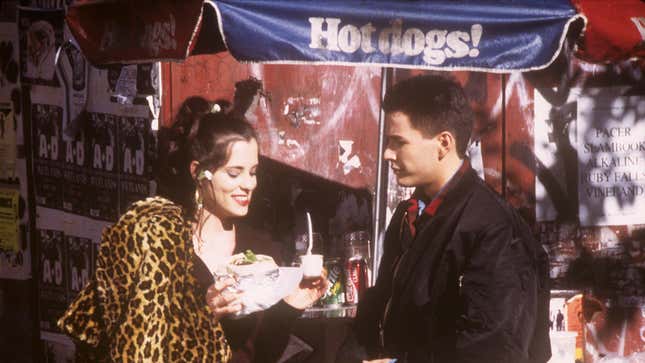The Everlasting Appeal of ‘Party Girl’
Director Daisy von Scherler Mayer recalls the making of her 1995 cult classic about the club-kid scene, which is now being rereleased in theaters.
EntertainmentMovies

To writer-director Daisy von Scherler Mayer, her 1995 movie Party Girl is “the gift that keeps on giving.” This, despite its meager initial returns. In a Zoom call with Jezebel this week, von Scherler Mayer explained that she sold the movie to First Look Pictures in a distribution deal for $30,000 (which she split with co-writer Harry Birckmayer). It went on to be a hit at Sundance, though given post-production costs, it essentially broke even at the box office when it ultimately grossed $500,000.
And yet, Party Girl lives on. It will forever be remembered as the star turn from Parker Posey, occurring early in her ‘90s indie reign. Because First Look went out of business, it was out of print or otherwise unavailable for years until Fun City Editions snapped it up, performed a 4K remaster on the 16mm film, and released a special edition Blu-ray of it. Starting this week, it’s back in theaters for a limited run. (It’s also streaming on the Criterion Channel in its remastered version.)
The idea for the movie—which finds Posey’s club-kid character Mary attempting to pivot to a daytime career as a library clerk while maintaining her nightlife presence and wooing a sexy Lebanese guy named Mustafa (Omar Townsend), who runs a falafel stand—was to create something “about all the side characters in other films and have fun with it.” (In supporting roles, there’s Guillermo Diaz as Mary’s DJ roommate; Anthony DeSando as Mary’s gay friend Derrick; Liev Schreiber as Mary’s sometime love interest, the bouncer Nigel; and von Scherler Mayer’s mother Sasha von Scherler as Mary’s librarian godmother Judy.) Von Scherler Mayer grew up in New York and reflected a lot of her ‘80s clubgoing in her script. She was particularly tight with nightlife staple Jenny Lumet, and she based club-owner Rene (Donna Mitchell) partially on Nell Campbell.
Party Girl came out in 1995, the year before Michael Alig and his roommate, Robert D. “Freeze” Riggs, killed Andre “Angel” Melendez and effectively snuffed out the club-kid scene. The movie summarized and ultimately eulogized an era. To promote the theatrical rerelease, von Scherler Mayer talked to Jezebel about Party Girl’s enduring legacy, its no-brainer diversity, and what led her away from moviemaking and into directing for television on shows like Halt and Catch Fire and Yellowjackets. An edited and condensed transcript of our conversation is below.JEZEBEL: Your $150,000 movie made about $500,000 at the box office—when did you get the sense that it was a cult favorite?
DAISY VON SCHERLER MAYER: I’m very proud of the script. I’m very proud of the film. But there is a sparkle dust around Parker Posey in this film that is just undeniable. And we felt it when she came in to audition and we felt it on set. Even if sometimes she and I would butt heads, because I wanted things word-perfect and she wanted to add a like, “T-O apostrophe Up: Toe up!” and I’m like, “What are you even saying?” But I think that even that tension creatively between the two of us was awesome. And obviously we love each other now. But I would say that when we were at Sundance, we didn’t get [nominated] for the fancy awards. It wasn’t the best new film or whatever, but I feel like we should have won the Audience Award, and I know that everybody came up to us and was like, “We’re voting for you for the Audience Award.” I did feel that there was something very special there and if anything was kind of surprised that it wasn’t a bigger box office hit.
Given the box office return, it seems odd that it was picked up to be a TV series.
That was pretty heartbreaking and disastrous for me and for Harry, because [Fox] was like, “We love it, and now we’re going to change everything about it.” We said the TV series should just be about Mary and Derrick, which would be myself and Harry, but a cooler version of [us], and it should be about the relationship between a woman and the intense friendship with her best male gay friend. And they were like, “Absolutely not. We can cast a gay actor. They can feel gay, like Bewitched, but we could never have them come out.” Cut to [two years] later, Will and Grace comes out and I’m like, “Why I oughta!” We knew it. We knew that was a great relationship and an emotionally and comedic one for TV. And anyway, woulda coulda shoulda.
-

-

-

-

-

-

-

-

-

-

-

-

-

-

-

-

-

-

-

-

-

-

-

-

-

-

-

-

-

-

-

-

-

-

-

-

-

-

-

-











































